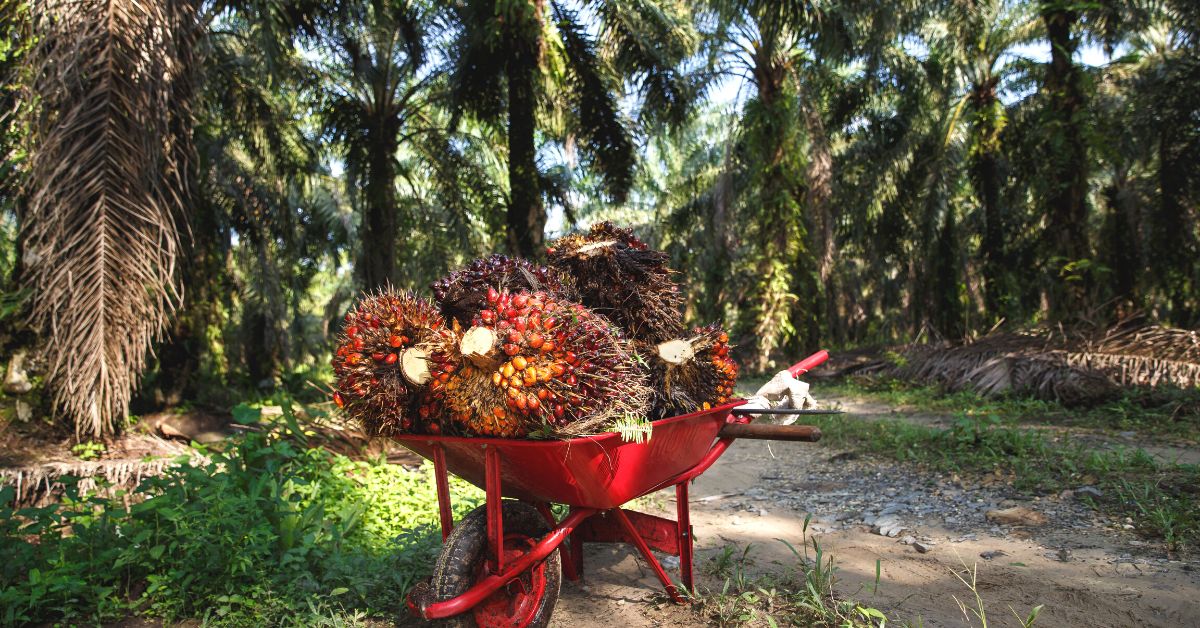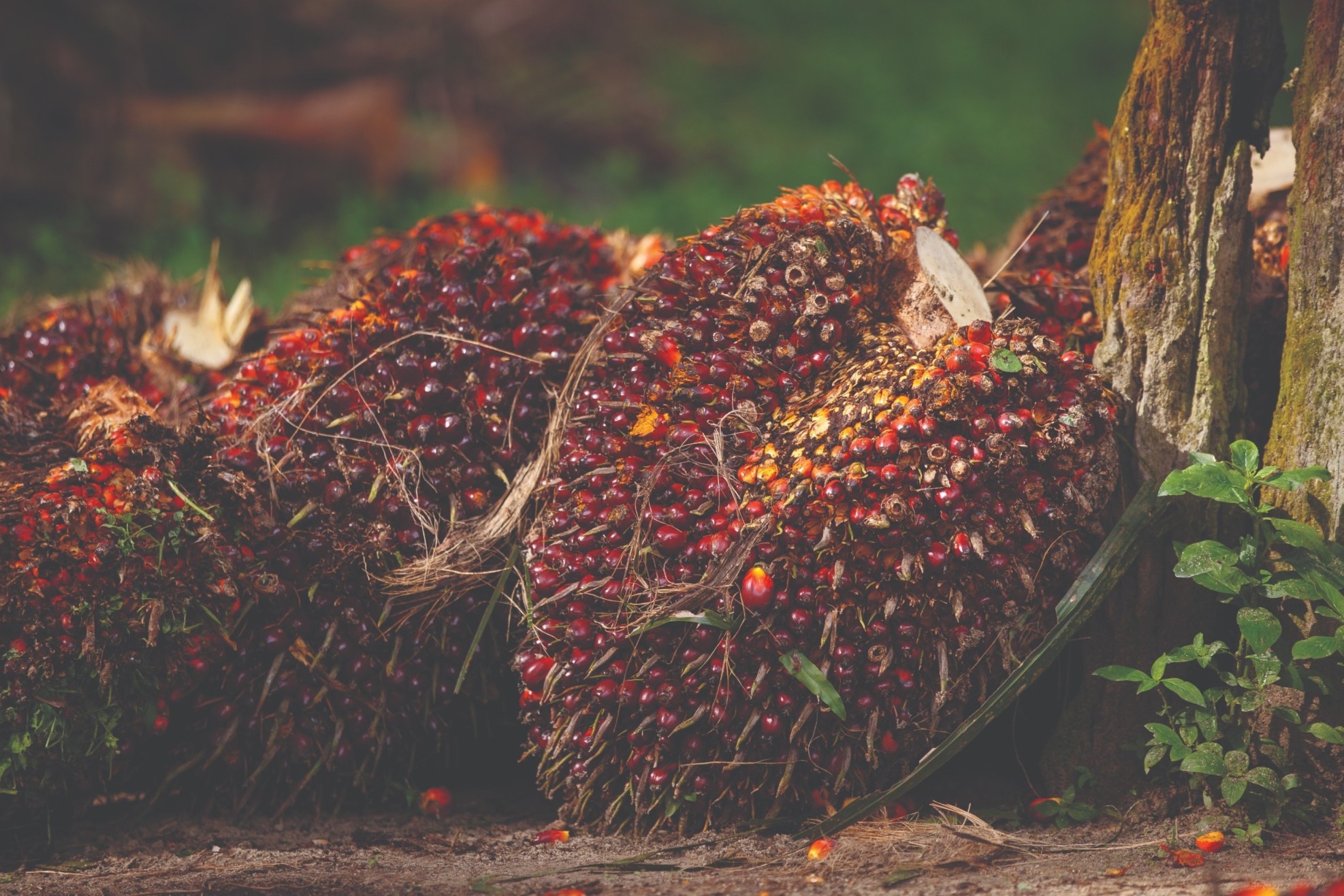Here’s How Sustainably-Sourced Palm Oil Can Benefit the Planet
There's conventional palm oil and there's palm oil that is sustainably cultivated and processed. While the former has been known to cause social and environmental issues, the latter works towards countering these issues

This article has been sponsored by the Roundtable on Sustainable Palm Oil (RSPO).
How many of you visit the kitchen late at night to grab a midnight snack? Those dead-of-the-night cravings often range from cereal, biscuits, and instant noodles to chocolate, chips, and ice cream. If you take a moment to read the ingredients, you might be in for a surprise, because most of these products and more have a common ingredient, or its derivatives, called palm oil.
Palm oil, a raw material that is widely used in a range of products such as cereals and ice cream, has also become infamous, despite its popularity. A quick search online would tell you that it has been a major cause of deforestation in tropical regions and endangering wildlife species like the Orangutan, Sumatran Rhinoceros and Sumatran Tiger. While these accounts are not factually incorrect, they do not tell the full story. A lot do not clarify that it is not the ingredient that causes all these issues, but the way it is grown and processed.
A deeper dive into this would introduce you to conventional palm oil and palm oil that is sustainably cultivated and processed. While the former has been known to cause social and environmental issues, the latter works towards countering these issues, including curbing deforestation, implementing sustainable practices in the cultivation of oil palm and supporting the livelihoods of smallholder farmers.
Speaking about some of the benefits of sustainably produced palm oil, Kamal Prakash Seth, former Global Deputy Director and Head of India of the Roundtable on Sustainable Palm Oil (RSPO) says, “Nineteen percent of the total worldwide production of palm oil is produced sustainably. The companies committed to sustainable palm oil production have a substantially higher equity return of 24.7 percentage points, thus showing that it ‘pays’ to be sustainable. Palm oil, as compared to other oils like sunflower, rapeseed, or soybean, has the biggest usage. It is a popular oil since it is relatively cheap, uses fewer resources, and is more versatile and high yielding.”

As a not-for-profit multi-stakeholder organisation, the RSPO was formed in 2004 to respond to the global call for sustainably produced palm oil. It has more than 5,000 members worldwide who represent all stages along the palm oil supply chain—including oil palm growers, palm oil processors and traders, consumer goods manufacturers, retailers, banks and investors, environmental conservation-focused NGOs, and social development NGOs—to work toward the common goal of developing and implementing global standards that enable sustainable palm oil production and uptake. RSPO has been working with several international organisations such as the United Nations Environment Programme (UNEP), the World Wide Fund for Nature (WWF) and FMCG giants like Hindustan Unilever Limited (HUL) to work towards achieving this goal.
How Is It Efficient?
Now if you are thinking about just switching to another oil, which like palm oil, is neutral flavoured and versatile, we suggest you take a moment. Alternative oil crops like rapeseed, sunflower or soybean oil require four to 10 times more hectares of land to yield what oil palm crops can in a single hectare.
Imagine a smallholder farmer owning one hectare of land. When used to cultivate coconut oil, they can produce around 0.07 tonnes of coconut oil per hectare. On the other hand, when cultivating oil palm crops on the same patch of land, they can yield 3.3 tonnes per hectare. That’s 4.7 times more than the yield of coconut oil!
Additionally, palm oil maintains its properties even under high heat, making it a common choice in restaurants and factories selling fried products. Also, palm oil is often added to nut-based butter like peanut butter as a stabiliser to prevent the oil from separating from the butter and settling on top.
The lack of a distinctive smell and ability to make baked goods like biscuits or desserts like ice cream form a creamy texture also contributes to its popularity. It is also a known natural preservative that can extend the shelf-life of various food products. And on top of all these, palm oil costs comparatively less than other vegetable oils.
All of these factors and more make palm oil more efficient than its contemporaries.
Encouraging the use of sustainably produced certified palm oil is a solution that the RSPO is working to implement on a global scale. RSPO standards ensure that the cultivation of oil palm crops does not cause any destruction of wildlife habitat, especially endangered species or deforestation, and is not grown on peatlands, which are a type of wetland conventionally used to grow oil palm crops causing high CO2 emissions and flooding. It also ensures that there is no use of fire in the process to safeguard the regions from any scope of forest fires or pollution.
One of its core pillars includes Free and Prior Informed Consent (FPIC), which empowers local communities to voice their concerns and have the decision-making power on issues related to the sustainable cultivation of oil palm on their land. FPIC ensures fair treatment of all, thus eliminating any space for exploitation. By becoming RSPO certified, smallholder farmers can have higher yields and access to global markets, which in turn increases their income.
RSPO, in association with Navbharat Limited, is training more than 300 independent smallholder farmers in Andhra Pradesh and is helping them get certified as per the RSPO Independent Smallholder (ISH) standard, covering almost 2,000 acres of oil palm plantation.

How Can You Help?
Talk with your family and friends about the importance of sustainable palm oil and ask your favourite brands to only use RSPO Certified Sustainable Palm Oil, in addition to ensuring that they make it known by including the RSPO Trademark label on their packaging. With your support, it is possible to make sustainable palm oil the norm for the benefit of people, the planet and prosperity.
If you found our stories insightful, informative, or even just enjoyable, we invite you to consider making a voluntary payment to support the work we do at The Better India. Your contribution helps us continue producing quality content that educates, inspires, and drives positive change.
Choose one of the payment options below for your contribution-
By paying for the stories you value, you directly contribute to sustaining our efforts focused on making a difference in the world. Together, let’s ensure that impactful stories continue to be told and shared, enriching lives and communities alike.
Thank you for your support. Here are some frequently asked questions you might find helpful to know why you are contributing?


This story made me
-
97
-
121
-
89
-
167











